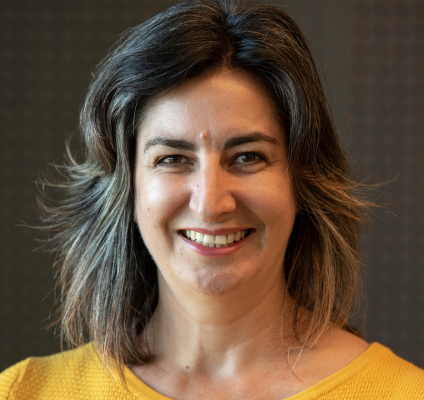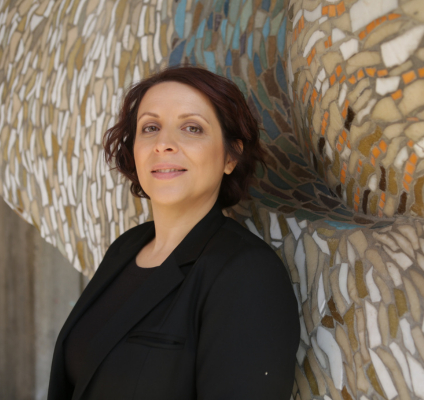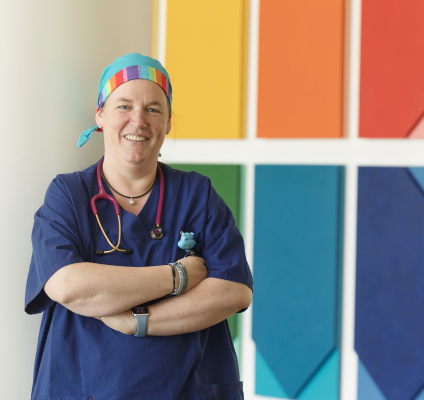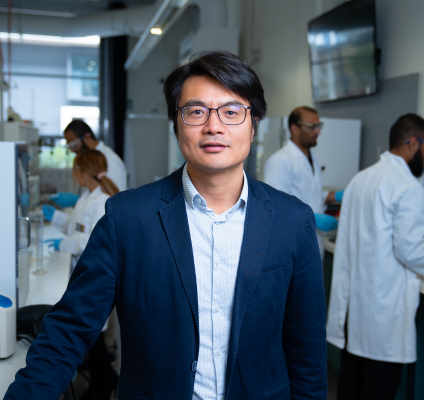The Mid-Career Scientist of the Year category recognises outstanding scientists who have completed their highest degree between 5-15 years ago, and has demonstrated excellence in a field of science, scientific research or technology advancement.
Now in its 22nd year, the Premier's Science Awards recognises and celebrates the outstanding scientific research and engagement taking place in Western Australia.
This year, 5 finalists have been chosen for the Mid-Career Scientist of the Year category:
Professor Ashleigh Lin
The University of Western Australia
Professor Ashleigh Lin is a leading youth mental health researcher in Western Australia. Her work particularly focuses on the mental health of marginalised young people, including LGBTQA+ and Aboriginal youth.
Professor Lin is a National Health and Medical Research Council Emerging Leadership Fellow and Adjunct Professor at The University of Western Australia. She is passionate about equity, inclusion and improved mental health service access for all young people in the State.
One of Australia’s leading researchers into the mental health of trans youth, Professor Lin was the senior researcher on the landmark Trans Pathways study which transformed understanding of challenges faced by this group.
Dr Katarina Miljkovic
Curtin University
As Australia joins the modern space age, the work of astrophysicist Dr Katarina Miljkovic has helped position Western Australia at the forefront of planetary research and space exploration.
An associate professor at Curtin University’s School of Earth and Planetary Science and the Space Science and Technology Centre, Dr Miljkovic leads the only Australian group that has been collaborating with the NASA InSight mission on Mars since 2018. Their work on meteorite strikes contributed to the first-ever mapping of the crust of Mars. Dr Miljkovic’s recent work aids in finding resources such as water on and off Earth; essential for future space missions.
Professor Britta Regli-von Ungern-Sternberg
The University of Western Australia
Professor Britta Regli-von Ungern-Sternberg, Chair of Paediatric Anaesthesia at UWA and Co-Lead of the Perioperative Medicine Program at Telethon Kids Institute, is a global research leader in paediatric anaesthesia and perioperative medicine.
Working as a Consultant Anaesthetist at Perth Children's Hospital ensures Professor Regli-von Ungern-Sternberg’s research remains consumer-focused and clinically translatable with an emphasis on improving clinical practice.
Professor Regli-von Ungern-Sternberg’s research impact is evident not just in Western Australia, but worldwide, and has led to improved clinical care and made undergoing anaesthesia safer for children.
Professor Debbie Silvester-Dean
Curtin University
Professor Silvester-Dean is a multi-award-winning researcher and educator at Curtin University. She is recognised internationally for her world-leading research in the fields of gas sensing and electrochemistry, working on fundamental research that is delivering solutions to real world problems, through rapid detection of life-threatening situations. Professor Silvester-Dean has further created a vibrant research group and built-up extensive laboratory infrastructure, securing many competitive fellowships and project grants as well as industry partnerships.
Professor Silvester-Dean is a strong advocate for women in STEM and has spearheaded initiatives to support students and early career researchers around Australia.
Professor Hongqi Sun
The University of Western Australia
Hongqi Sun, Professor of Chemistry from School of Molecular Sciences, The University of Western Australia (previously in School of Science at Edith Cowan University before July 2023), has significantly advanced energy and environmental catalysis by exploring novel nanomaterials. To date, he has published over 300 refereed journal papers, attracted over 32,600 citations and maintains an h-index of 99 (Google Scholar).
Professor Sun has secured over $5 million funding, including for the Australian Research Council, Cooperative Research Centres and industry projects. He has been a Clarivate Analytics Highly Cited Researcher since 2019. Professor Sun is further a current member of Australian Research Council’s College of Experts, a delegate to Australia-US Hydrogen Research Partnerships, and was among The Australian’s Research Magazine’s, 2020 Top 40 Australia’s Research Superstars.







